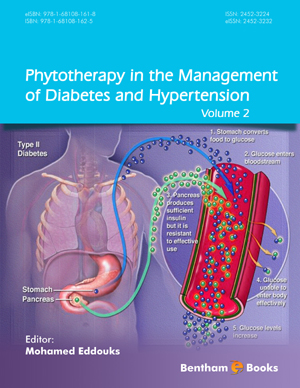Abstract
Diabetes and hypertension are the two major global public health problems and are associated with each other. The number of diabetic and hypertensive patients is increasing all over the world at an alarming rate rapidly in developing countries due to a number of reasons. Conventional anti-diabetic and antihypertensive drugs are usually associated with many side effects such as severe hypoglycemia, lactic acidosis, idiosyncratic liver cell injury, permanent neurological deficit, digestive discomfort, headache, dizziness and even death. On the other hand, about 75 to 80% of the world population use herbal medicines, particularly in the developing countries, for primary health care not only due to their better acceptability by human body and lesser side effects but also due to lower cost compared to conventional drugs. This chapter is aimed at providing an in-depth information about the antidiabetic herbs such as Ficus religiosa, Pterocarpus marsupium, Gymnema sylvestre, Allium sativum, Eugenia jambolana, Momordica charantia, Tinospora cordifolia, Trigonella foenum-graecum and antihypertensive herbs such as Ginkgo biloba, Passiflora nepalensis, Zingiber officinale which have shown considerable protective effects in the recent studies. The chapter will also provide some directions for future studies which may be aimed at isolation, purification, and characterization of bioactive antidiabetic and antihypertensive compounds present in these plants. Apart from antidiabetic and antihypertensive activities, the possible mechanisms of actions of the above-mentioned plants are also discussed in this chapter.
Keywords: Anti-diabetic, antihypertensive, medicinal plants.






















